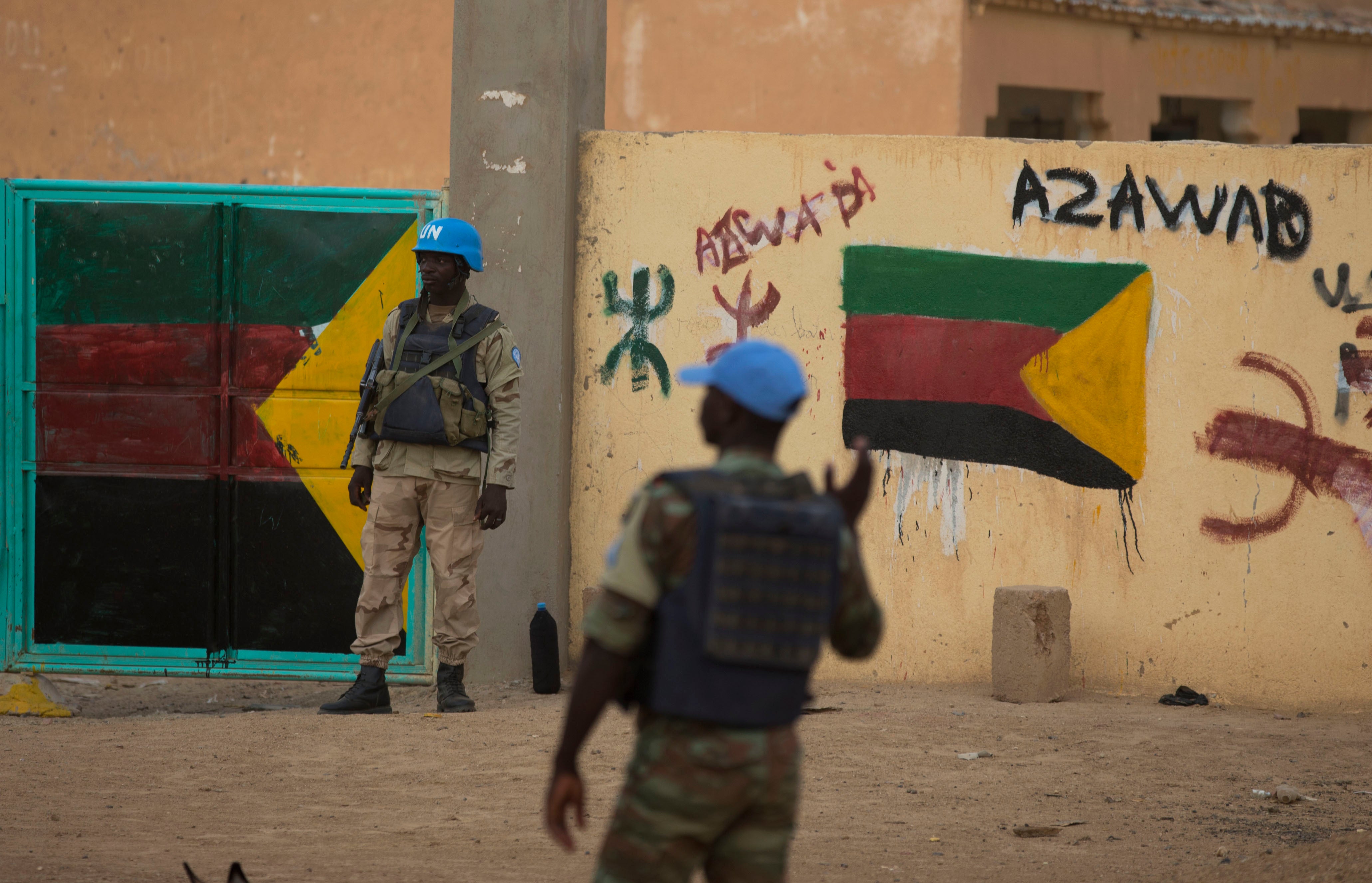U.N. peacekeepers in Mali withdraw from two bases in the north as fighting intensifies
The United Nations says its peacekeepers have started departing from two bases in northern Mali as part of a forced withdrawal from the country and amid increasing insecurity

Your support helps us to tell the story
From reproductive rights to climate change to Big Tech, The Independent is on the ground when the story is developing. Whether it's investigating the financials of Elon Musk's pro-Trump PAC or producing our latest documentary, 'The A Word', which shines a light on the American women fighting for reproductive rights, we know how important it is to parse out the facts from the messaging.
At such a critical moment in US history, we need reporters on the ground. Your donation allows us to keep sending journalists to speak to both sides of the story.
The Independent is trusted by Americans across the entire political spectrum. And unlike many other quality news outlets, we choose not to lock Americans out of our reporting and analysis with paywalls. We believe quality journalism should be available to everyone, paid for by those who can afford it.
Your support makes all the difference.United Nations peacekeepers started departing from two bases in northern Mali Monday as part of a forced withdrawal from the country amid increasing insecurity and a rise in attacks by Islamic extremists.
The U.N. mission said it wanted to complete its departure quickly from two camps in the Kidal region, Tessalit and Aguelhok. Attacks in northern Mali have more than doubled since the peacekeepers completed the first phase of their withdrawal in August.
“In view of the rapidly deteriorating security conditions for the lives of hundreds of peacekeepers ... the mission is doing its utmost to complete this process as soon as possible, including if necessary, accelerating its withdrawal from the Kidal camp, originally scheduled for mid-November,” a UN statement said.
Earlier this year, Mali's military junta ordered the U.N. mission to leave the country, which has struggled to contain an Islamic extremist insurgency since 2012. The operation in Mali became one of the most dangerous in the world, with more than 150 peacekeepers killed since it began operations in 2013.
Violence is spiking between ethnic Tuareg rebels, known as the Permanent Strategic Framework for Peace, Security and Development (CSP-PSD) and Mali's military. Analysts say the uptick signals the breakdown of a 2015 peace agreement signed between the government and the rebels who once drove security forces out of northern Mali as they sought to create the state of Azawad.
Earlier this month the rebels said they captured another military base from the army in the north.
On Monday, Mali's military said on X, formerly Twitter, that its aircraft came under heavy fire as it approached Tessalit's airport. The army neutralized the enemy and the aircraft was able to land and take off without problems, it said.
Compounding the rebel violence are increasing attacks by Islamic extremists linked to al-Qaida and the Islamic State group, which have wracked the country for a decade and led to two coups.
Extremist rebels were forced from power in the West African nation’s northern cities in 2013 with the help of a French-led military operation. But the insurgents regrouped in the desert and began launching attacks on the Malian army and its allies.
The U.N. peacekeepers came in a few months later in what has become one of the most dangerous U.N. missions in the world.